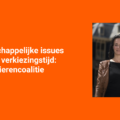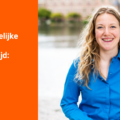Last week VPRO Buitenhof presenter Hugo Logtenberg had one nice interview with Sander Schimmelpenninck about the new book 'Elite wanted' that he wrote together with Ruben van Zwieten. In the book they indicate that the elite in the Netherlands is currently failing. They mainly refer to the economic, cultural and political elite. The economic elite includes entrepreneurs, the top executives of the business community and all people with a fortune of 1 million or more. The people who are in charge within the business community. They identify intellectual poverty, a lack of citizenship and visibility of the business community and a lack of empathy, which - as Ron Meyer (of SP) concluded during this interview - makes the differences between the economic elite and the rest of society too great and connection disappears. Schimmelpenninck and Meyer concluded that if there is social involvement, it mainly concerns a new form of philanthropy, which widens rather than narrows the gap in society.
This is in line with the classification we previously made in our book Issue Thinking, in which we indicated that there is an increasing need in society for entrepreneurs and companies that solve social problems. We noted that after corporate social responsibility (CSR), which focuses mainly on the environment, sustainability and greenery, and after corporate social responsibility (MBO), which focuses on modern philanthropy, there is an increasing need for socially impactful entrepreneurship (MIO). With socially impactful entrepreneurship, companies and entrepreneurs actually solve problems by linking them to a business model.
The knife cuts both ways. On the one hand, it concerns the way in which a company uses existing (natural) resources and the possible damage it causes. After all, natural raw materials are needed, production processes cause harmful emissions, production sites affect the environment and the health of employees can be at risk. That damage must be compensated. In this respect, MIO builds on the old CSR.
On the other hand, it is about the impact that an organization wants to make. This concerns the way in which an organization deliberately helps to put social problems on the agenda and solve them. Because entrepreneurs can turn this into a business model and ensure that these problems are actually tackled.
Socially Impactful Entrepreneurship therefore goes beyond philanthropy or communicating a purpose in your communication. It is a choice that goes further than profiling or positioning yourself as an organization. When the business community chooses impact as a starting point for its business operations and then makes visible what it stands for, it cuts both ways. Then you earn money, contribute to solving social problems and your own business model also becomes a lot more future-proof.






